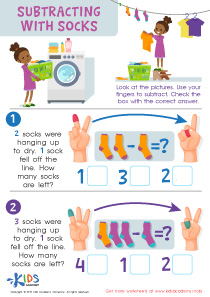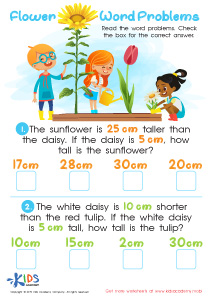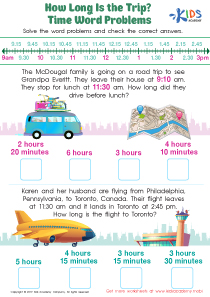Hand-eye Coordination Addition and Subtraction Word Problems Worksheets for Ages 5-9
3 filtered results
-
From - To
Welcome to our Hand-eye Coordination Addition and Subtraction Word Problems Worksheets for Ages 5-9! These engaging worksheets are specifically designed to enhance young learners' math skills while promoting essential hand-eye coordination. Through interactive word problems that combine fun illustrations and relatable scenarios, children will practice addition and subtraction in an enjoyable way. Each worksheet encourages critical thinking and problem-solving as students develop their math abilities. Perfect for homeschooling or classroom use, our printable resources help reinforce learning and keep kids motivated. Watch your child thrive in math while improving their fine motor skills and coordination—explore our selection today!
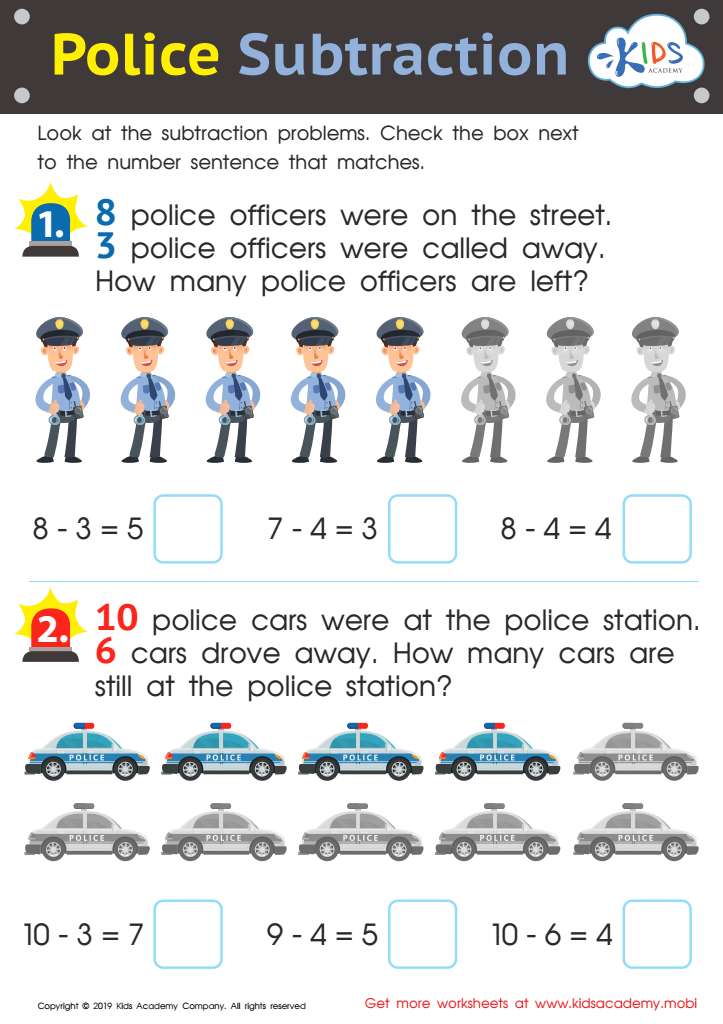

Police Subtraction Worksheet
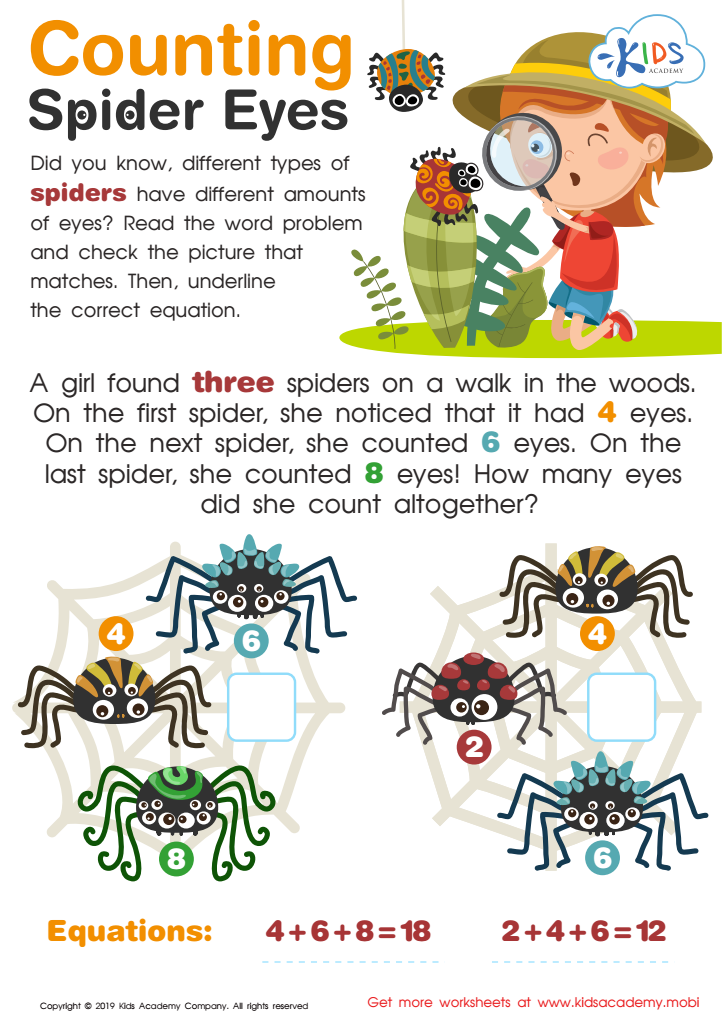

Counting Spider Eyes Worksheet


Counting Seedlings Worksheet
Hand-eye coordination is a crucial skill for young children, influencing their ability to engage in formal learning and daily activities. Incorporating hand-eye coordination exercises with addition and subtraction word problems provides several benefits for children aged 5-9.
First, it connects physical activity with cognitive development, making learning more dynamic and engaging. When children solve word problems using hands-on activities, such as manipulatives or drawing, they enhance their understanding of mathematical concepts in a tangible way. This kinesthetic approach reinforces learning by allowing them to visualize and physically manipulate numbers, adding richness to their problem-solving experience.
Moreover, developing hand-eye coordination supports fine motor skills, which are essential for tasks such as writing, cutting, and crafting. Proficiency in these skills boosts children's confidence as they navigate both academic challenges and everyday tasks.
Additionally, engaging children in multi-modal learning—combining physical and cognitive tasks—can lead to improved focus, retention, and a positive attitude toward learning. By emphasizing hand-eye coordination within math exercises, parents and teachers support holistic development, ensuring children become proficient, confident learners. Ultimately, nurturing these skills sets the stage for successful academic experiences as children grow.
 Assign to My Students
Assign to My Students











